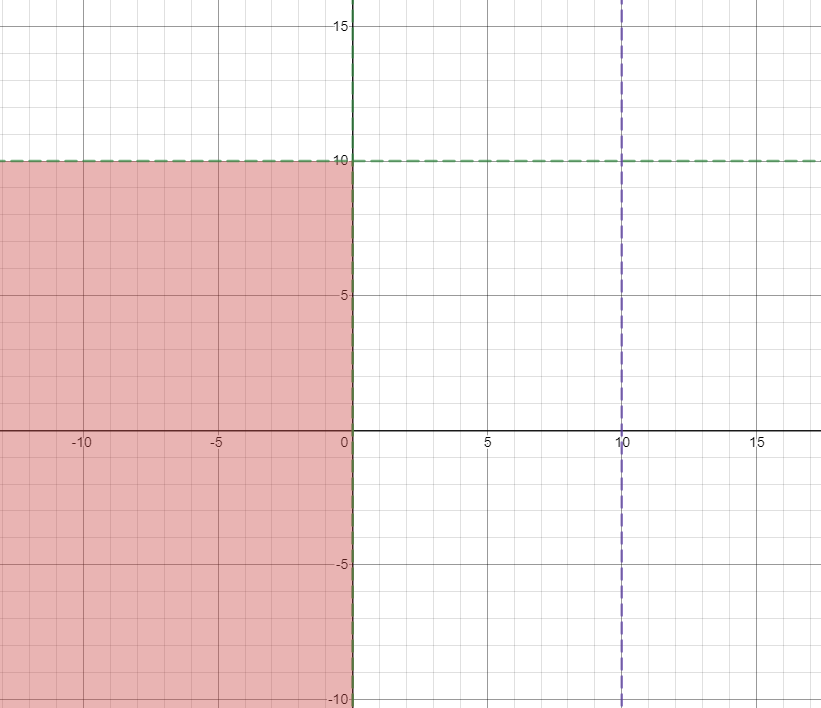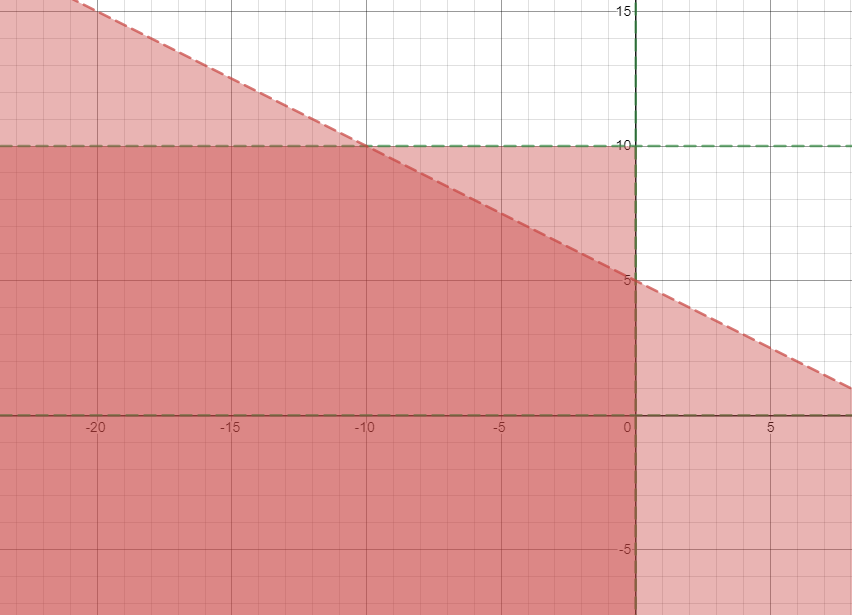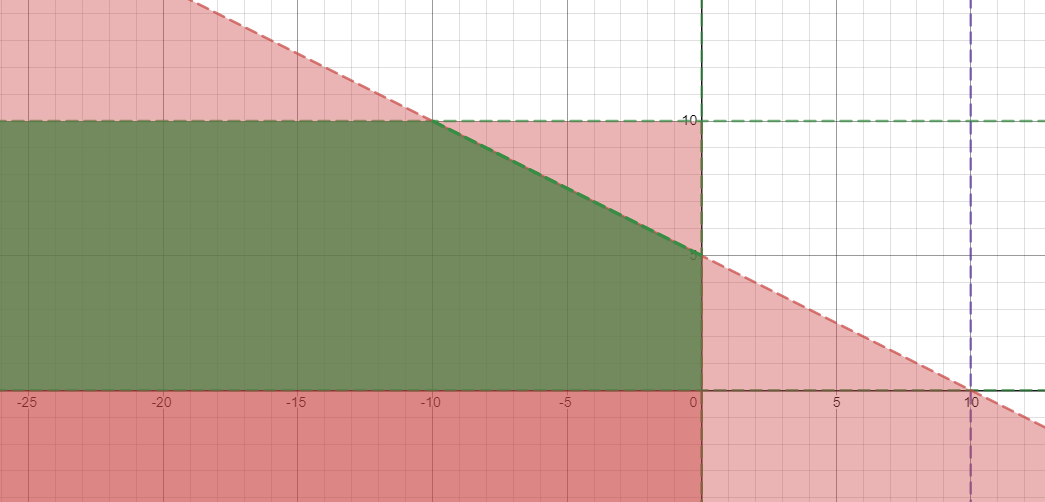Hi Littlemixfan,
Find the number of pairs of integers (x,y) with x is less than 0, y is less than 10, that satisfy
\(\frac{1}{1-\frac{10}{x}} > 1 - \frac{5}{y}\)
First I want to look at formula restrictions.
\(y\ne0\\ x\ne0\\ x\ne10\)
We also have the question restriction of
\(x<0\qquad and \qquad y<10\)
So where can it be so far:

NOW
\(\frac{1}{1-\frac{10}{x}} > 1 - \frac{5}{y}\\ \frac{1}{\frac{x-10}{x}} > 1 - \frac{5}{y}\\ \frac{x}{x-10} > \frac{x-10}{x-10} - \frac{5}{y}\\ \frac{x-(x-10)}{x-10} > - \frac{5}{y}\\ \frac{10}{x-10} > - \frac{5}{y}\\ \frac{x-10} {10}< - \frac{y}{5}\\ - \frac{y}{5}>\frac{x-10} {10} \\ \frac{y}{5}<\frac{-x+10} {10} \\ \frac{y}{1}<\frac{-x+10} {2} \\ y<-0.5x+5 \)
So that is underneath the line y=-0.5x+5
NOTE: Maybe I made an error but I do not think so. Maybe it was meant to be a < sign.
Also,:
I left the > sign in for all my working but it would have been easier just to solve for = and then test the regions afterwards.

So far I have these 2 regions. But since there are 2 regions one where y<0 and one where y>0 I will test both.
Test (-1,+1) and (-1,-1)
\(\frac{1}{1-\frac{10}{x}} > 1 - \frac{5}{y}\\test\;(-1,1)\\ \frac{1}{11}>-4\quad true \\ test\;(-1,-1)\\ \frac{1}{11}>6\quad false \\ \)
So here is the region:

I think there is an infinite number of integer pair solutions.
LaTex:
\frac{1}{1-\frac{10}{x}} > 1 - \frac{5}{y}\\
\frac{1}{\frac{x-10}{x}} > 1 - \frac{5}{y}\\
\frac{x}{x-10} > \frac{x-10}{x-10} - \frac{5}{y}\\
\frac{x-(x-10)}{x-10} > - \frac{5}{y}\\
\frac{10}{x-10} > - \frac{5}{y}\\
\frac{x-10} {10}< - \frac{y}{5}\\
- \frac{y}{5}>\frac{x-10} {10} \\
\frac{y}{5}<\frac{-x+10} {10} \\
\frac{y}{1}<\frac{-x+10} {2} \\
y<-0.5x+5